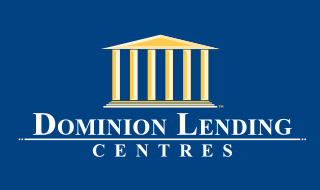| |
| C:UsersToshibaDesktopDSCN0716.jpg |
|
|
| |
Colin Dawes
Dominion Lending Centres Interest Advantage
|
Phone: 604-556-6718
Fax: 888-845-4871 |
| |
|
|
|
|
|
|
|
|
Hi Mallory
|
|
Welcome to the August issue of my monthly newsletter!
|
 |
|
This month’s edition looks at 4 costs to consider as a first-time homebuyer and the mortgage default rate in Canada. I would love to hear back from you if you have any questions or feedback regarding anything outlined below.
Thanks again for your continued support and referrals!
 |
|
|
| |
4 costs to consider as a first-time homebuyer
 |
|
 |
|
| |
|
Oftentimes even the most organized and detail oriented first-time homebuyer can overlook some unexpected costs that come with the purchase of their new home. We are outlining four of the costs that we most commonly see overlooked by homebuyers in hopes that we can better prepare you—and save you from a few surprises!
- Closing Costs
Congratulations! Your offer was just accepted on your new home, you’re one step closer to adding a major asset to your portfolio! We don't want to shock or dampen the excitement of this moment. However, it's important that you factor in closing costs right at the beginning of your purchase. The best time to do this is before even applying for your pre-approval or making any offers on a home. Closing costs may include:
• insurance
• taxes (Land Transfer, Property, and others depending on what province you are in)
• legal/notary fees
• inspection/appraisal fees.
A general rule of thumb is to set aside 1.5 per cent of the purchase price to account for the closing costs above. To plan ahead, consider speaking to a mortgage broker and your realtor. They can help you determine just how much you should set aside to accommodate those additional closing costs.
- Utility Bills
If you've gotten used to living in a small space, such as a condo or an apartment, you may be surprised how much more water, heat, and energy you consume in a larger space such as a detached home or a townhouse. It's important to prepare for these as you do not want to have a “surprise” when your bill arrives in the mail and it's nearly double what you are used to spending!
Factoring in these bills is also crucial if you are going from renting to owning! Often times the landlord will cover a portion of your utility bills or your cable/internet depending on the contract you had with your landlord. Of course, once you are a homeowner, you are covering the entire cost! Ask family members, friends, even your mortgage broker or realtor what is a realistic cost for things such as cable and internet, water, heat, etc. You’d be surprised how fast they can add up!
|
|
|
- Renovations and Updates
Unless you bought a newly built, brand new home, there is undoubtedly going to be future renovations and updates that you will need to do on your home. They may not need to happen right when you move in, but sometimes the unexpected does happen and having money set aside can make a world of difference! When you have your home inspection completed, make a prioritized list of what will need to be fixed/updated first and set aside money each month for it. In addition to the “must do” updates/renovations, new property owners may also want to make aesthetic improvements, whether they mean to reside there or not. Naturally, a homeowner wants to make the place feel more like their own, and investors want to add value their investment or make adjustments to make the asset more aesthetically pleasing.
- Ongoing Maintenance
Homes require maintenance—all the time! Ask any homeowner and they will tell you that there is always home maintenance in one form or another happening.
A few common home maintenance costs may include:
• Gutter cleaning
• Roof repair/maintenance
• Drywall repair
• Furnace cleaning
• HVAC and Duct cleaning
• General plumbing and electrical fixes
Every home is different in regards to how much you should budget annually for regular maintenance. It will depend on the age of your home, square footage, climate in your region, and overall condition of your home.
In closing, property ownership shouldn't be dampened by financial rules caused by lack of preparation. All of these costs, as well as additional other costs, are easy to plan ahead for and to ensure that you have budget set aside each and every single month to make sure that you stay on track. As a rule of thumb, the CMHC states that your housing costs including mortgage payment should not exceed 39 per cent of your monthly income. Treat this number as a point of reference when you're doing your budget and consider leaving room for the unexpected. It'll give you peace of mind on the long run and allow you to actually enjoy your new home!
|
|
|
| |
 |
|
| |
Mortgage default rates are not a problem
 |
|
 |
|
| |
|
There is always a lot of talk about the growing debt in the personal finances of everyday Canadians. And to some extent, it may be true. No doubt, many consumers have gotten used to throwing things on a credit card and then moving on to the next big purchase. The federal government was so concerned about personal debt, they enacted a bunch of rules related to qualifying for a mortgage in an effort to cool off the market. The politicians in Ottawa were concerned a sub-prime mortgage fiasco like the one that devastated the U.S. and world economy a decade ago would happen in Canada. You could argue, the intentions of these tougher qualifying rules were noble, but evidence suggests these measures weren’t really warranted. The most recent numbers by the Canadian Bankers Association (CBA) seems to dispel the concerns by the federal government.
According to the CBA, at the end of January 2019, just .25 per cent of mortgages through the major banks were in arrears of three months or more. For more perspective, out of the 4.75 million mortgages in Canada through the banks, 11,742 were in arrears. That’s basically statistically insignificant. And what it also seems to suggest, is that Canadians are actually very responsible when it comes to paying their biggest bill on time.
|
|
|
|
A closer look at the numbers also appear to blow Ottawa’s case for tough mortgage rules out of the water.
The hottest markets during the last decade were Ontario and B.C. Home prices skyrocketed in cities like Vancouver and Toronto, the average price of a single-family home climbed to more than $1 million.
There was a wide concern that homebuyers were taking on too much mortgage and would end up under water. Again, the CBA’s stats seem to suggest otherwise. Both B.C. and Ontario have the lowest rate of arrears among the provinces. In Ontario, just .10 per cent of mortgages are in arrears, while in B.C., it’s slightly higher at .15 per cent. Just 955 mortgages in B.C. were in arears at the end of January 2019 out of more than 643,000. The Atlantic province had the highest percentage of mortgages in arrears at .52 per cent.
Obviously any amount of people struggling to keep their home is unfortunate. It would be ideal if not a single homeowner defaulted on their mortgage. With an election this fall, it’s anyone’s guess where the mortgage qualifying rules are going to go. But statistically speaking, the mortgage industry is on very solid ground and Canadians are more than capable of paying their mortgage on time.
|
|
|
| |
 |
|
| |
 |
|
Homeowner Tips
|
|
Fall Lawn Care:
What you do for your lawn during the fall will have a great impact on what your lawn will look like next spring. There are four simple steps you can take to help ensure your lawn will be healthy, green and the envy of the neighbourhood next year:
1) Aerate. This means to puncture your lawn with small holes throughout to allow the fertilizer, sunlight, water and important nutrients that grass needs to grow deep within the ground;
2) Fertilize. Basically this means feed your lawn before it goes to sleep for the winter;
3) Overseed. This is when you spread new grass seed all over your existing lawn with a spreader; and
4) Mow. In November, mow your lawn one more time as short as you can without scalping your lawn. This will help all the other steps above work better.
|
|
|
| |
 |
|
About Dominion Lending Centres & DLC Leasing
 |
|
| |
 |
We are Canada's largest and fastest-growing mortgage brokerage! |
 |
We have more than 2,800 Mortgage Professionals from more than 350 locations across the country! |
 |
Our Mortgage Professionals are Experts in their field and many are ranked among the best nationally. |
 |
We work for you, not the lenders, so your best interests will always be our number one priority |
 |
We have more than 100 mortgage programs, making it easy to choose the best fit for your unique situation. |
 |
We close loans in all 10 provinces and 3 territories. |
 |
We can process your mortgage in as few as 7 days. |
 |
We are the preferred mortgage lender for several of Canada's top companies. |
 |
Dominion Lending Centres' Mortgage Professionals are available anytime, anywhere, evenings and weekends - and we'll even come to you! |
|
 |
| |
 |
Securing an insured mortgage (otherwise known as a high-ratio mortgage) means having less than 20% down, and the mortgage will be backed by the Canada Mortgage Housing Corporation (CMHC), Genworth or Canada Guaranty. All insured mortgages need to qualify using the Bank of Canada’s Conventional 5 year fixed posted rate (also referred to as the Benchmark Rate) the current rate is 5.19%.
An uninsured mortgage is mandatory to qualify using the higher of two rates; the contract rate + 2% OR the Bank of Canada’s 5.19% qualifying rate. Only one level of approval is required, from the actual mortgage lenders. These mortgages can have 30 year amortizations and have a home value of any size.
|
|
|












